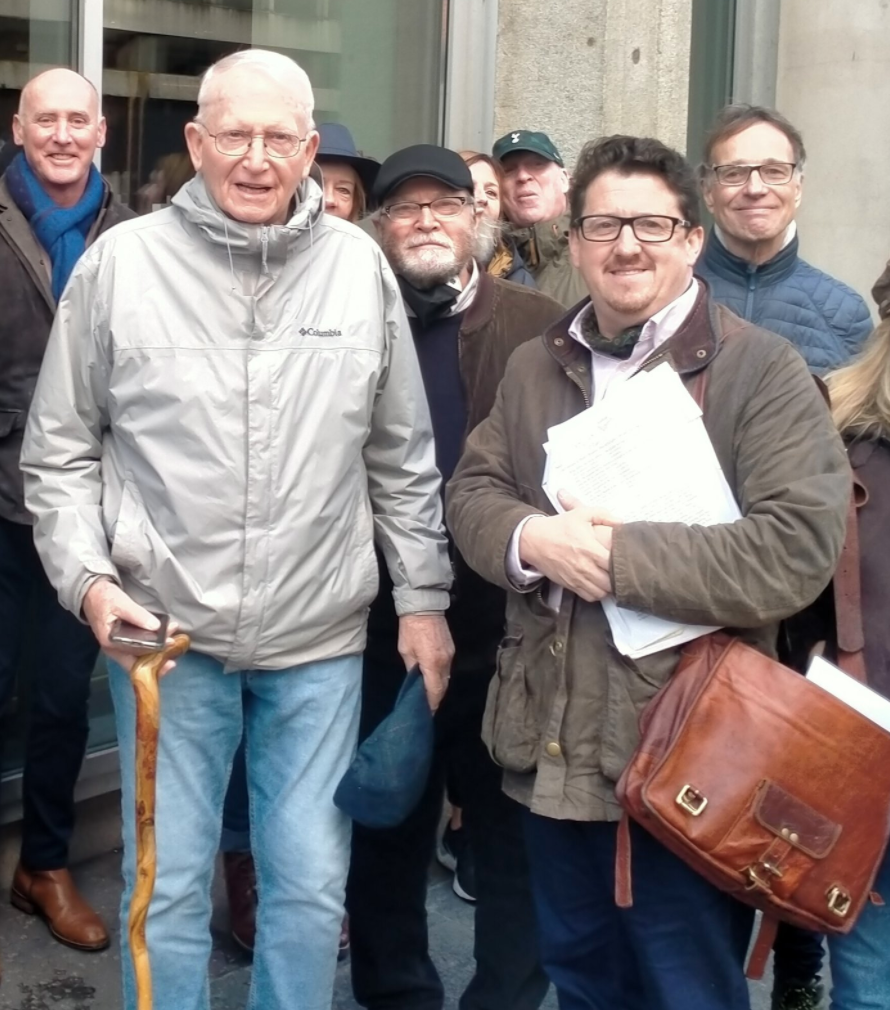AMERICAN descendants of United Irishman leader Theobald Wolfe Tone have traced their famous ancestor's footsteps during a walking tour focusing on Belfast's radical 18th century history.
William Tone – a direct descendant of Wolfe Tone's uncle, Thomas Tone – joined the 1798 Belfast Walking Tour, which celebrates the radical republican Presbyterians whose revolutionary ideas helped shaped the city, once dubbed "the Athens of the North".
The Florida man, who is in his eighties, also travelled to Wolfe Tone's grave in Bodenstown and the grave of fellow United Irishman Thomas Russell in Downpatrick earlier in the week.
Also on Saturday's tour was Fergus Whelan, historian and author of a recently published biography of William Drennan. It was Drennan who penned the solemn declaration adopted by the Society of the United Irishmen's founders including Wolfe Tone, Thomas Russell, Henry Joy McCracken and Samuel Neilson.
Seán Napier, who founded the tour alongside Colm Dore, described the experience as "surreal".
"We were in the middle of this place in Belfast where Wolfe Tone, such an epic figure in Irish history, played such a major part," he said.
"Now 226 years later a member of the family is walking in his footsteps – that has never really happened before.
"We talked about various things in the tour like how Wolfe Tone came to Belfast, how he really loved the nightlife and how he would go on the beer with Thomas Russell and others. We also talked about how he thought the people of Belfast were the most radical. He said the 'people of the Belfast are the radicals'."
🟩 Very special visitor today as I welcomed members of Wolfe Tone's extended family from the United States on our #1798WalkingTour...say hello to William Tone and crew from Florida..what a day!@Seanofthesouth @ColmDore pic.twitter.com/zOeBOC5qkF
— 1798 Belfast Walking Tour (@1798walkingtour) October 30, 2021
Mr Napier said the tour aims to bring Wolfe Tone and his compatriots "to life", with attendees brought to old haunts where these Ulster radicals would drink beer, chase women, and talk sedition.
"They were only young lads but they were also doing something very big," he said. "You wouldn't go to jail for 15 years, you would get your neck stretched and your head cut off for doing it."
Adding to the peculiarity of the occasion, Saturday's tour also offered an opportunity for Tone's relatives to explain just what the man thought of Americans.
"Every week we ask if there are any Americans on the tour because we talk about Wolfe Tone landing in Philadelphia, where he got ripped off in a land deal," Mr Napier explained.
"So he just didn't like them – he thought they were all money-grabbers. He made these comments in his diaries. At the weekend I said, I would get Wolfe Tone's descendants to tell you this – talk about surreal.
"William stepped forward and said 'yeah, he didn't like Americans'."
Last weekend's tour connected past and present in a way unlikely to be repeated in the near future. But true to the memory of Wolfe Tone, the 1798 Belfast Walking Tour has its own significance for the people of Ireland.
"It's becoming very liberating for people," Mr Napier said.
"It's allowing people to think straight, to think along the way of unity of Catholic, Protestant and Dissenter. They're starting to realise what that means when they think about this period of time, and when they think about this young, egalitarian, anti-slavery current."








